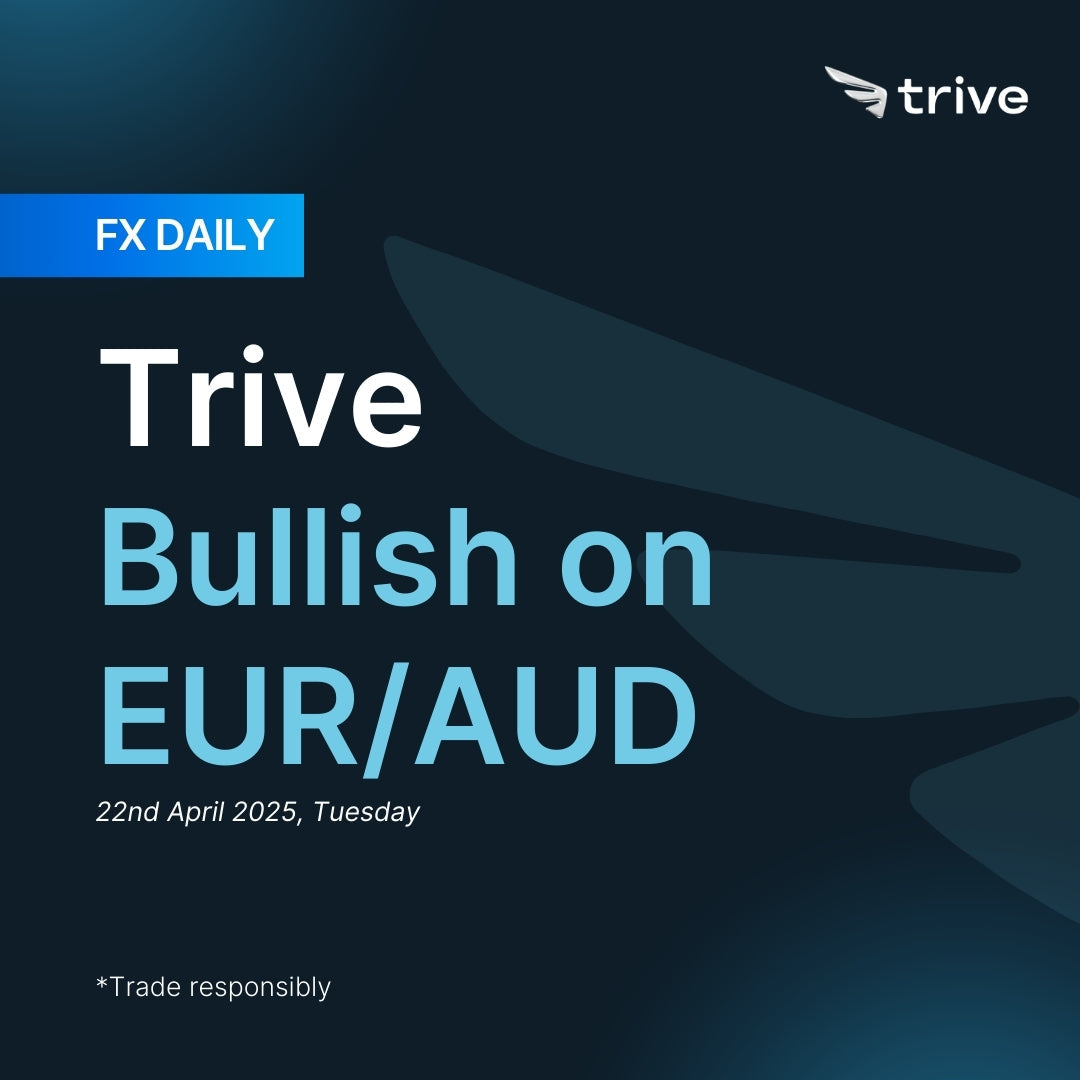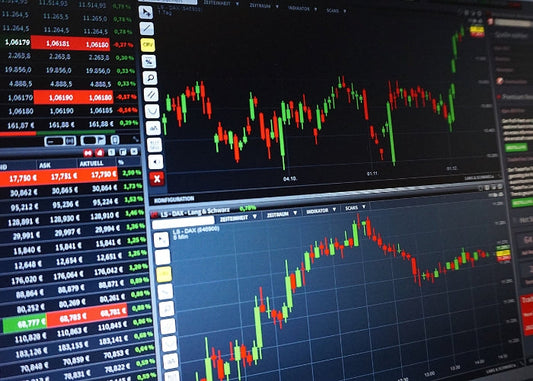FX Daily: Trive Bullish on EUR/AUD

The baseline outlook for the EUR remains bullish, as it stands as the second most liquid currency globally, particularly gaining favor when the USD loses market appeal. In contrast, the AUD is currently under pressure due to its strong trade ties with China, which is facing tariff threats from the US.
EUR: New King
The EUR has been one of the top-performing currencies since the U.S. tariff announcement, outperforming even traditional safe-haven currencies like the JPY and CHF. The key driver behind this strength is the euro's status as the second most liquid currency globally and its role as a preferred alternative to the U.S. dollar in global FX reserves. For now, as long as market uncertainty over U.S. trade policy persists and sentiment remains negative toward the USD, the EUR may continue to assert dominance as the ‘King’ of the G10 FX space.
On the domestic front, the key event of the week was the ECB meeting. As widely expected, the ECB delivered another 25bps rate cut in April, bringing the policy rate down to 2.25%. In its latest MPS, the ECB removed the reference to policy being “restrictive,” suggesting that the stance has approached a broadly neutral level. However, President Lagarde maintained a meeting-by-meeting approach to future decisions. During the press conference, Lagarde placed significant emphasis on the downside risks to growth stemming from rising trade uncertainty, while noting that the inflation implications of these developments remain unclear. She clarified that no policymakers supported a 50bps cut, and stimulus discussions were not on the table. Regarding the removal of the term “restrictive,” Lagarde explained that assessing restrictiveness is currently meaningless, as the concept of a neutral rate is only valid in a ‘shock-free’ environment. Overall, the ECB communicated a slightly more dovish tilt than anticipated, with a stronger focus on growth risks over inflation pressures. This strengthens the case for further rate cuts ahead.
In terms of FX, the usual co-movement between exchange rates and rate differentials has weakened, largely due to eroding confidence in the USD following Trump’s trade policy moves. Should interest rate spreads once again become the main driver of FX, the dollar could recover. However, markets currently doubt this scenario, and a meaningful reversal in Trump’s trade policy would be required to trigger a sustained USD rebound. As a result, while the ECB has introduced some dovish signals, it remains a secondary driver for the EUR at this point, as broader market sentiment continues to be guided more by growth concerns than interest rate differentials.
Looking ahead, the eurozone calendar is relatively light, with the main highlight being the April preliminary PMIs. However, the overarching theme in the FX market will likely remain centered around U.S. trade policy developments. Therefore, barring any significant positive shifts in U.S.-China trade policy, the baseline outlook for the EUR remains well supported, particularly due to its status as the world’s second most liquid currency.
AUD: External risk
The Antipodean currencies—particularly the AUD—have been notable underperformers since the announcement of new U.S. tariffs, primarily due to their high-beta nature and sensitivity to global risk sentiment. From a direct trade standpoint, Australia faces relatively limited impact, given its already low exposure to the U.S., and despite being subjected to a 10% tariff—currently under a 90-day pause. However, this pause has offered little relief to the AUD, as the broader concern lies in the spillover effects from escalating U.S.-China trade tensions. The AUD continues to trade as a liquid proxy for the Chinese yuan (CNH), making it particularly vulnerable to developments in the U.S.-China relationship. Notably, China is now facing cumulative tariffs of 145% from the U.S., and has retaliated by raising tariffs on U.S. goods from 84% to 125%. This intensifying trade conflict remains a key downside risk for the AUD in the near term.
On the domestic front, the March labor data continued to signal a tight labour market in Australia, with the unemployment rate steady at 4.1% and 32.3K full-time jobs added. Nonetheless, global factors continue to dominate the outlook for the AUD. In China, markets are increasingly expecting further RRR cuts from the PBoC in Q2 (at least 25bps), in response to growing external pressures from U.S. tariffs. This would add to the stimulus measures already in place—recall that in March, Beijing announced new fiscal measures, including a higher budget deficit target, and hinted at additional support to come. The Politburo is set to meet later this month to outline the near-term policy agenda. Should China's stimulus efforts sufficiently offset the impact of tariffs, or if the final U.S. tariff rate turns out lower than currently anticipated (which seems unlikely for now), these developments could help the AUD rebound—especially with support from improving risk sentiment, solid domestic fundamentals, a tight labour market, and a moderately hawkish RBA.
Looking ahead, the AUD calendar is quiet, with no major domestic events expected to move markets. Therefore, focus will remain on external factors—chiefly U.S.-China trade tensions. In the absence of any positive developments in U.S. trade policy, the AUD remains under pressure, with external risks likely to continue driving the currency in the near term.
 EUR/AUD 4H
EUR/AUD 4H
Disclaimer
This material is provided for informational purposes only and does not constitute financial, investment, or other advice. The opinions expressed in this material are those of the author and do not necessarily reflect the views of Trive International. No opinion contained in this material constitutes a recommendation by Trive International or its author regarding any particular investment, transaction, or investment strategy. This material should not be relied upon in making any investment decision.
The information provided does not consider the individual investment objectives, financial situation, or needs of any specific investor. Investors should seek independent financial advice tailored to their individual circumstances before making any investment decisions. Trive International shall not be liable for any loss, damage, or injury arising directly or indirectly from the use of this information or from any action or decision taken as a result of using this material.
Trive International may or may not have a financial interest in the companies or securities mentioned. The value of investments may fluctuate, and investors may not get back the amount they originally invested. Past performance is not indicative of future results.
For more information about Trive International, please visit http://trive.com/int
Additional Information
Investing involves risk, including the potential loss of principal. Diversification and asset allocation strategies do not ensure a profit or guarantee against loss. The content in this material is subject to change without notice and may become outdated or inaccurate over time. Trive International does not undertake any obligation to update the information in this material.
By accessing this material, you acknowledge and agree to the terms of this disclaimer. If you do not agree with these terms, please refrain from using this information.
No comments
Home
Trive
TriveHub





0 comments